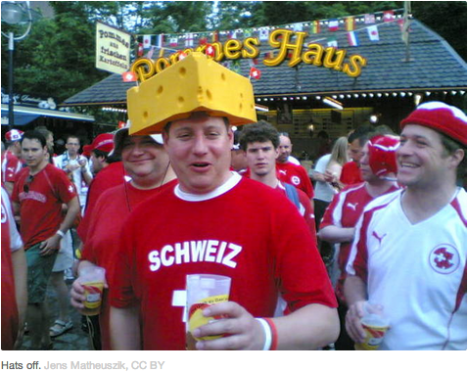A festival of nationalism: the World Cup allows sponsors to divide and conquer
 Sponsors are encouraging corporate nationalism during the World Cup, argues academic Mark Doidge in a crossposting from The Conversation.
Sponsors are encouraging corporate nationalism during the World Cup, argues academic Mark Doidge in a crossposting from The Conversation.
The section of the crowd behind the goal was awash with red and white when Switzerland took on Ecuador in their opening World Cup match. Faces were painted; many had white crosses painted onto red cheeks. All of them reflected the Swiss national flag and the colours of the football team on the pitch. Rather unusually, four men sat wearing hats fashioned to look like Swiss cheese. Within the holes were mini Swiss flags.
These apparently wacky sartorial gestures have not been confined to the Swiss and they say an awful lot about our subjugation to the corporate interests of FIFA. You could see similar pictures two days before as Mexico played Cameroon. Amongst the many thousands of Mexicans that travelled south to Brazil, there were hundreds wearing sombreros and lucha libre wrestling masks; two highly marketable emblems of masculine Mexican identity.


